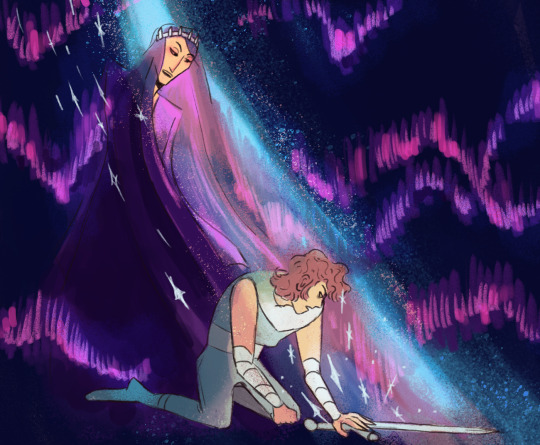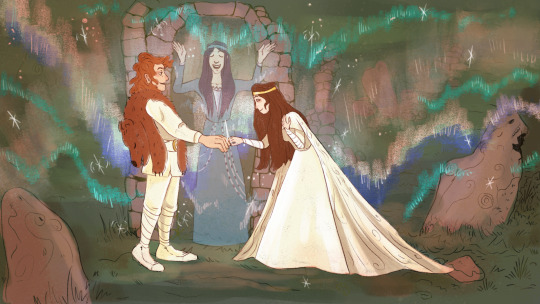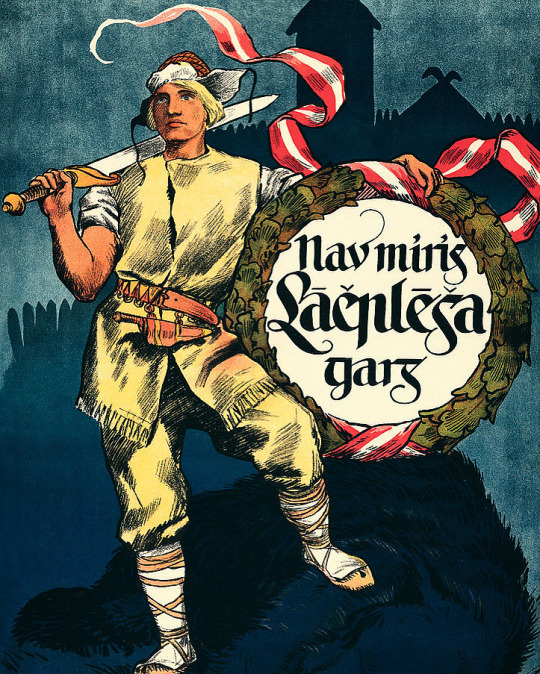#lāčplēsis
Text
OOOO FUCK MERRY CHRISTMAS

Again like I’M SOOOO SORRYYY IT TOOK SO LONG! I’ve tried to get most of my mutuals but whoopsie it’s now 2024 and I really really needed to get it done, but uh it’s been an awesome year! I’m so glad I got tumblr cause it’s fun and cool
@genderlesslemons @randompurr @men-in-gitis @usernamesarehardtocreateman @solar-satan @gardenstyx @caelums-fate
#ruwu arts#art#digital art#oc art#art mutuals#not my oc#oc content#fanart#gift art#christmas#lineless art#digital drawing#ibispaintx#different styles#doodle#OC TAG Tapist#hello kitty#Lāčplēsis rokopera#Lāčplēsis
30 notes
·
View notes
Text
it's always "i love you" but never "i would give you my life. i would give you my death." smh
9 notes
·
View notes
Text

I am forever cursed to like things that nobody has made a fandom for, RIP all my passions wasted , anyway here's Ziemeļmeita telling Lāčplēsis to man the fuck up from the 1980s Lāčplēsis rock opera
#Lāčplēsis#art#my art#myth#myths and legends#latvija#latvia#latvian legend#illustration#illustrators on tumblr#digitalart#artists on tumblr
17 notes
·
View notes
Text
How can we have so many translations of different Dostoevskies and Tolstoys in Ukrainian - but no "Bearslayer" by Andrejs Pumpurs??? This is so embarassing, it's like having no Shakespear in Ukrainian
4 notes
·
View notes
Text
Lāčplēsis the epic and that one Old Spice commercial have the same vibes, I can’t explain it
#i apologize#shitpost#latvia#latvian literature#old spice#lāčplēsis#epics#this dawned on me while talking to my friend about the epic and I was trying to summarize it and yeah#latvian#literature
6 notes
·
View notes
Text
happy lāčplēsis' day to the latvian folks

17 notes
·
View notes
Text
they don’t make latvian musicals/rock operas the way they used to 😞
#kaupēn mans mīļais#spēlēju dancoju#indriķa hronika#lāčplēsis#i want something new and latvian bruh why do they keep adapting russian plays all the time fuck that shit#lie.txt
2 notes
·
View notes
Photo

🔥LĀČPLĒSIS
#lāčplēsis #latvia #balticlegends #nationalepic
https://www.instagram.com/p/CgcsTo8vf82/?igshid=NGJjMDIxMWI= Lāčplēsis is an epic poem by Andrejs Pumpurs, a Latvian poet, who wrote it between 1872–1887 based on local legends. Lāčplēsis is regarded as the Latvian national epic. The poem recounts the life of the legendary hero Lāčplēsis, chosen by the gods to become a hero of his people. His name means "Bear-slayer", because as a young man, living as the adopted son of the Lord of Lielvārde, he kills a bear by ripping its jaws apart with his hands. At the castle of Lord Aizkrauklis, he spies on the activities of the witch Spīdala, who is under the control of the Devil, and the holy man Kangars, who is in reality a traitor plotting with crusaders to replace the old gods with Christianity. Spīdala tries to drown Lāčplēsis by throwing him into the whirlpool of Staburags in the Daugava, but he is rescued by the goddess Staburadze and taken to her underwater crystal castle. There Lāčplēsis meets and falls in love with the maiden Laimdota. Shortly afterwards, Lāčplēsis becomes friends with another hero, Koknesis ("Wood-bearer"), and they study together at the Castle of Burtnieks, Laimdota's father. Kangars provokes a war with the Estonians, and Lāčplēsis sets out to fight the giant Kalapuisis (Estonian: Kalevipoeg (the "Kalapuisis" name is derived from kalapoiss), probably refers to the hero of the Estonian epic poem Kalevipoeg), to win the hand of Laimdota. He defeats the giant, and the two make peace and decide to join forces to fight their common enemy, the German missionaries, led by the priest Dietrich (Dītrihs). Lāčplēsis performs another heroic deed by spending the night in a sunken castle, breaking the curse and allowing the castle to rise into the air again. Laimdota and Lāčplēsis are engaged. In the following episodes, Laimdota reads from the old books about the Creation and ancient Latvian teachings. Laimdota and Koknesis are kidnapped and imprisoned in Germany. Spīdala convinces Lāčplēsis that Laimdota and Koknesis are lovers. Lāčplēsis returns home to Lielvārde, then sets sail for Germany. His ship becomes lost in the Northern Sea, and he is welcomed by the daughter of the North Wind. In the meantime, Dietrich and the Livonian prince Caupo of Turaida meet with the Pope in Rome to plan the Christianization of Latvia. Lāčplēsis begins his dangerous journey home from the Northern Sea. He fights monsters with three, six, and nine heads on the Enchanted Island. Finally, he encounters Spīdala on the island, and frees her from her contract with the Devil. Lāčplēsis is reunited with Laimdota and Koknesis, who escaped from Germany but were then trapped on the Enchanted Island. Koknesis declares his love for Spīdala, and the four friends return to Latvia. A double wedding is celebrated during the Jāņi (Midsummer festivities), but the heroes soon set off to fight the German crusaders. After several battles, the Germans are pushed back, and their leader, Bishop Albert, brings reinforcements from Germany, including the Black Knight. At Dietrich's bidding, Kangars finds out the secret of Lāčplēsis' strength and treacherously reveals it to the Germans: Lāčplēsis' mother was a she-bear, and his superhuman strength resides in his bear ears. The German knights come to Lielvārde offering to make peace. Lāčplēsis organizes a friendly tournament, during which he is goaded into fighting the Black Knight. The knight cuts off Lāčplēsis' ears. Lāčplēsis, still, having not yet completely lost his strength, explodes in anger and lifts the Knight, to throw him in the river from a cliff. But the two combatants fall into Daugava river, because the Knight, when thrown, grabs Lāčplēsis, and they both disappear into the water. In the same moment Laimdota's life ends. Canto I The council of the gods – Lāčplēsis' destiny revealed Canto II The first heroic deed of Lāčplēsis – Lāčplēsis sets out to Burtnieki castle – Meeting with Spīdala – In the Devil's pit – In Staburadze's palace – Return and meeting with Koknesis Canto III The conspiracy of Kangars and Spīdala – War with the Estonians – The sunken castle – The Creation – The Latvians tricked by the Christians Canto IV Kaupa in Rome – Koknesis and Laimdota in Germany – Lāčplēsis in the northern sea – Lāčplēsis' return Canto V On the bewitched island – Meeting with Spīdala – Homecoming – Lāčplēsis, Laimdota and Koknesis reunited Canto VI Midsummer festival – Battle begins – Lāčplēsis' wedding – Death of Lāčplēsis Contemporary background Edit From the time of the Northern Crusades in the early 13th century, most of the land in Courland was owned by nobles descended from the German invaders. In 1863, the Russian authorities issued laws to enable Latvians, who formed the bulk of the population, to acquire the farms which they held, and special banks were founded to help them. By this means, some occupants bought their farms, but the great mass of the population remained landless, and lived as hired laborers, occupying a low position in the social scale. This was the situation prevailing at the time of writing - thus, the strongly negative presentation of these German invaders had clear contemporary implications for the writer's own time.
6 notes
·
View notes
Text
when there is an epic poetry poll and it features odyssey illiad beowulf divine comedy and all that guys but no tale about igor's campaign and no david of sassoun and no koblandy batir and also no lāčplēsis or kalevipoeg
15 notes
·
View notes
Text
oh sure, you can gift them flowers but will you be anything they wish for? like kangars or lāčplēsis ressurected? huh? will you??? didnt think so. pussy.
6 notes
·
View notes
Note
Hi! I know almost nothing about Arthuriana, except some few stories that we read ten years ago in Middle School in English class. I would want to know a little more about the historical context, the origins, the meanings and the orders of all those legends, but I don’t know where to begin. Do you study them in school/uni or do you research about them on your own? Thank you!
Hi! No, I've never really studied Arthuriana, though we touched upon it a little at university during some of our English Literature classes, but in very broad strokes. Plus our professor made us read the book she wrote on the similarities between Arthuriana and the Latvian epic Lāčplēsis (don't know about my classmates, but I read it - it was pretty interesting, but I still found it funny that she was essentially forcing people to read her book). Frankly speaking, I wouldn't say I do research about it now either - I just read whatever works I find available online, choosing them based on what I've heard about them and what links I find floating around on tumblr. Regarding the historical context and origins, some years ago I read a pretty comprehensive book that was like a summary of previous research on the historical origins of Arthuriana, but it was in Russian - "Меч короля Артура. Так рождалась легенда" (The Sword of King Arthur. So the Legend Was Born) by Vadim Erlikhman, so I don't think it will be of much use because it is hardly translated into English. It has a long bibliography which includes a lot of books and research works in English, but I don't know which of them are the most useful.
As to where to begin... it’s a difficult question, especially since a lot of these legends contradict each other more or less because they belong to different traditions. I think it helps if you already have an idea which characters or events in particular you would like to read about, because then you can start with the texts focused on them and then move to other characters or events if you decide that you enjoy these legends in general. @fuckyeaharthuriana has a lot of useful rec lists (links in blog description), including those sorted by character. I can also suggest some works that I enjoyed the most, but please bear in mind that I am far from being an expert - I read several texts last year in the wake of watching BBC Merlin and The Green Knight, and this year started devouring basically all texts I could find after reading Le Morte d'Arthur, but I haven't read the Vulgate, for example, and some other things that, I believe, are considered basics, while having read some more obscure texts that caught my attention but are not as fundamental. Anyway...
Yvain: Knight of the Lion by Chrétien de Troyes - this one has everything: adventures, love, friendship, active female characters (Lunete my best friend Lunete), an Animal Sidekick, and a happy ending after a lot of tribulations. The main character is Sir Yvain, son of King Uriens and Morgan Le Fay, and the story is about him falling in love with a widow of a knight he killed, managing to win her affection but then losing her trust and having to win it back while doing a bunch of heroic deeds on the way. Quite long but I found it a lot of fun.
The Wedding of Sir Gawain and Dame Ragnell for Helping of King Arthur - I’m linking the translation I read, but there are many of them available online. It’s a short and fun romance in which a knight captures King Arthur and challenges him to find out what women desire the most or lose his head. His nephew Gawain decides to help him and ends up having to marry an ugly lady who helped him find the answer, but then it turns out that her ugliness is actually a curse, which the answer he discovered helps him undo.
Sir Gawain and the Green Knight - I read it in translation by Bernard O’Donoghue, for the simple reason that it was the one I stumbled upon in a bookstore, but I can’t find it online. There are several other available, however; the one I’m linking is by Jessie Weston. With a movie recently being out, you probably know the gist of the plot: a green stranger arrives at king’s court and challenges Arthur’s knights to give him a blow of an axe and then, a year later, receive the same blow in return. So Gawain accepts the challenge and chops the Green Knight’s head off, but he puts the head back on, and now Gawain is due to lose his head in a year. As he rides off to meet his fate, he stays at a castle belonging to a married couple, where his honour is tested (and things get pretty gay).
The “Arthurian” Portion of the Roman de Brut by Wace - this one is not one of my favourites, to be honest, even though the language is really beautiful in some parts, but I think it’s important. It tells about Arthur’s ancestors, Uther’s rise to power, Merlin’s origins (which I found the most interesting part), Arthur’s rise to power, various conquests and death. Mostly conquests, which is why I wasn’t too engrossed.
Le Morte d’Arthur by Sir Thomas Malory (Volume 1, Volume 2) - this is one of those foundational works, a XV century attempt to put all the main Arthurian legends together. Arthur’s birth and the start of his reign, Lancelot and Guinevere, Tristan and Isolde, the quest for the Holy Grail, the fall of Camelot - it’s all here. There are various editions, but I don’t know which to suggest, because I made a questionable decision to read the original (the one I’m linking) which is not very easy to read because of the old language.
Prose Tristan and Povest ‘o Trystchane - I love the Tristan and Isolde stories not so much because I like the main couple but because they’re usually a lot of fun. Shenanigans, wild adventures, horniness, the “everyone’s a little in love with everyone” vibes... My preferred version of all I’ve read is Tristan’s part of Le Morte d’Arthur, but these two are also cool. They’re pretty similar until the second one (the XVI Belarusian version) starts diverging greatly (there’s a whole subplot where Tristan, Isolde, and Guinevere travel to save Arthur from captivity, it’s wild).
Morien - a Dutch romance about a young Moorish knight who goes on a quest to find his biological father and ends up having some adventures with Gawain and Lancelot. I like it because searching for one’s father is such a... normal reason for a quest, something perfectly understandable to a modern person, unlike many of the more outlandish ideas that appear in some other romances.
#sorry it took me so long to write such an unhelpful answer#but hey at least i found some links :D#i've reblogged several posts with links to other works under the 'arthurian legends' tag#but they're probably hard to find now under all the fanart and shitposts#asks#artemideaddams#arthurian legends#gella talks arthuriana#talk talk talk
25 notes
·
View notes
Photo


Thousands of candle lights and people paying tribute to Latvian heroes as we celebrate Lāčplēsis Day and remember our freedom fighters and soldiers, Riga, Latvia, November 11, 2022. Photo by D.P.
P.S. Today is a good day: Kherson has been liberated from the Russian invaders, and Latvia celebrates Lāčplēsis Day, when a crucial victory against joint German and White Russian imperialist forces under Count Pavel Bermondt-Avalov was won by the fledgling republic of Latvia on November 11, 1919.
#Latvia#Riga#street photography#original photography on tumblr#latvian independence war#castle of riga#daily life#Baltic States#Northern Europe
12 notes
·
View notes
Text
thank you to @christfucker and others for the tag. i wanted to do this a while back but i forgot so sorry for being late
do you play an instrument? no but i want to try bass next school year
favorite book characters? Spīdala and Laimdota (from epic poem Lāčplēsis), the nurse from Romeo and Juliet, Victor Frankenstein, idk if it counts but Antigone from Sophocles work
what’s your star sign? gemini
favorite color schemes? In art and painting i love blue-orange or dark colours, in clothes my favorite mix is black, red, demin and green together (some shitty metalhead combo)
naps or long sleep? i live entirely off naps
what languages do you speak? fluently latvian, english and russian, and now i’m learning french and german
long hair or short hair? i will always prefer short hair but i’m growing mine out to headbang at shows
tea or coffee? i have a horrible coffee addiction
bring a book character to life or go into a fictional world? I would want to bring Lāčplēsis to life, he is like latvian Heracles-Jesus hybrid so i am curios what would happen and i would definitely want to go into fight club universe to fist fight my porblems
Do this if you'd like, apologies if you've already been tagged.
@motherbunny @yourlocallygrowngay @wantsword @coldforest @adonisthearcher @shadow-in-your-head
6 notes
·
View notes
Text

Drawn for a secret Santa exchange this is for all my Latvians out there, the marriage of Lāčplēsis and Laimadot as afficiated by Ziemeļmeita based in the 1980s rock opera.
They always say that tumblr is a place for specific niches
#Lāčplēsis#art#illustration#illustrators on tumblr#latvija#latvia#legend of bear ripper#is that the right translation?#fanart#drawing#digital art#artists on tumblr#characterdesign#myth#legend#my art
17 notes
·
View notes
Text

Why is Lāčplēsis not popular on tumblr is gonna be the biggest mystery to me
0 notes
Text
DOD Featured Photos
Joint Training
Multinational troops representing Germany, Netherlands, Spain, and the U.S. stage their vehicles bef… Photo Details >
Honor Them
Army Capt. Assefa Gezu sets a torch during Lāčplēsis Day in Latvia, Nov. 11, 2023. The day honors fr… Photo Details >
Call to Service
New recruits and current service members take the oath of enlistment during the Atlanta Falcons’ Cal… Photo Details…

View On WordPress
0 notes